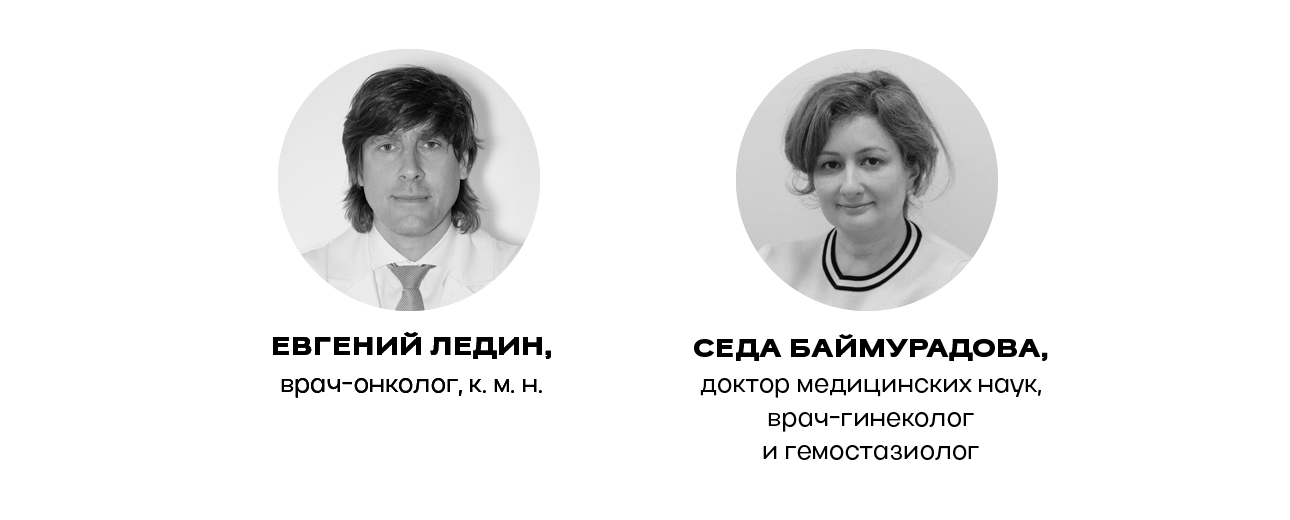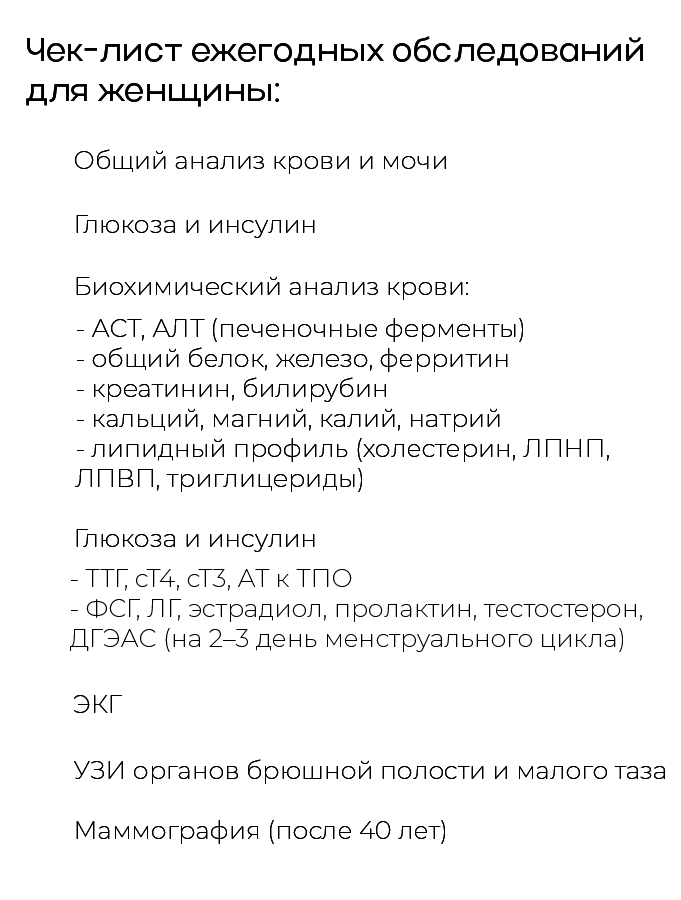If it defines in early stages, many diseases are improved. Therefore, the increasing popularity of controls is not only a stylish tendency, but also a necessity to turn into a habit. We talked to the experts about which role controls play in early detection of cancer, which exams are important at different ages, and why men and women should approach the prevention in different ways.

Oncologist Ph.D. “Regular controls are not a trend. The most important tool in the fight against oncology, or he says. Evgeny Ladyin. – Many malignant tumors develop asymptomatic. A person may feel great until the disease enters the late stage. And then it becomes much more difficult to treat. “
Preventive examinations allow you to detect neoplasms at the earliest stages when they still do not harm the body. So – there is a chance to protect the quality of life and quality of life.
What should be checked in 30, 40 and 50 years?
According to the oncologist, the prevention approach should be age.
“Age is a risk factor and the prevention should keep up with it,” the doctor emphasizes.
Men and Women: Different Approaches
Prevention in men and women is really different.
“Women are starting to visit a gynecologist from youth – this is already a part of culture. But men ignore the uology until serious complaints arise. This is a big mistake, Eugene Eugene says.
In addition, it is important that women do not forget the regular mammography and ultrasound examination of the breast glands with a hereditary predisposition. Men – follow the prostate carefully after 40 years.
If the family has cancer or diabetes, you need to examine more frequently
What exams should women do every year?
Women are more common than men with chronic and potentially dangerous diseases. Especially with age, the risk of oncology, diabetes, hypertension and cardiovascular disorder increases. Moreover, the disease may not show themselves – even those who feel great. For this reason, regular exams are not a luxury, but a measure of care for yourself.
The list of compulsory annual exams was prepared by Medical Sciences Doctor, Gynecologist and Hemostasiologist Sed Baimuradov.
1. General Blood and Urine Test
This simple, but highly informative tests are the basis of diagnosis. Anemia, inflammatory processes, help to identify renal disorders and monitor the general condition of the body.
2. Glucose and insulin
Analysis for sugar and insulin is particularly important to assess the risk of diabetes mellitus if the disease has excess weight, diet or family history.
3. Biochemical Blood Test
It allows you to evaluate the level of liver, kidneys, metabolism and the mineral level in the body. Make sure you have been checked:
– AST, Alt (liver enzymes)
– General protein, iron, ferritin
– Creatine, bilirubin
– Calcium, magnesium, potassium, sodium
– Lipid profile (cholesterol, LDL, HDL, triglycerides)
4. Hormonal Background
It is especially important for women during reproductive age and during menopause. It is recommended to buy:
– Thyroid hormones (TSH, ST4, ST3, TPO TO)
-Sers hormones (FSG, LH, Estradiol, Prolactin, Testosterone, DGEA) -In on 2-3 days of the menstrual cycle
5. Electrocardiogram (ECG)
Cardiovascular diseases are one of the main causes of mortality in women. ECG is a simple way to realize the deviations of the heart and to in time to recognize the deviations of the work and to prevent heart attack or arrhythmia.
6. Ultrasound of the abdominal organs and pelvis
The control of the liver, kidneys, gallbladder, uterus and ovaries allows you to identify neoplasms, cysts, inflammation or structural changes. It is particularly important to carry out this study in the presence of pain or in a violation of the menstrual cycle.
7. Mammography (40 years later)
The annual X -ray of the breast glands helps to identify breast cancer at an early asymptomatic stage. If you have a risk or a family cancer history, it may be necessary to start an examination before.
If you have a hereditary predisposition to cancer, endocrine or cardiovascular diseases, discuss a further diagnostic plan with the doctor. You may need genetic tests in depth hormonal panels or MRI/CT organs.

We have compiled an understandable checklist that can be protected for you.
Is it possible to “overcome” cancer with a healthy lifestyle?
A healthy lifestyle is an unconditional plus, but does not replace controls. Smoking, excessive eating, inactivity – all of this increases the risk of oncology. But even with a healthy lifestyle, no one is safe. Therefore, gold is a standard combination: Prevention + Lifestyle + Observation.
Source: People Talk
I’m Roger Gritton, and I’ve been writing for the The Fashion Vibes for over 5 years now. My specialty is beauty news; I’m passionate about covering the latest trends, products, and innovations in the industry. In my time there, I’ve become known as an authority on all things beauty-related.
I love discovering new experts to interview, researching up-and-coming ingredients and techniques that are making their way onto our beauty shelves and highlighting people who are making a difference in the world of cosmetics. My work has appeared not only on The Fashion Vibes, but also several other publications including the New York Times Magazine, Allure Magazine and Refinery29.





